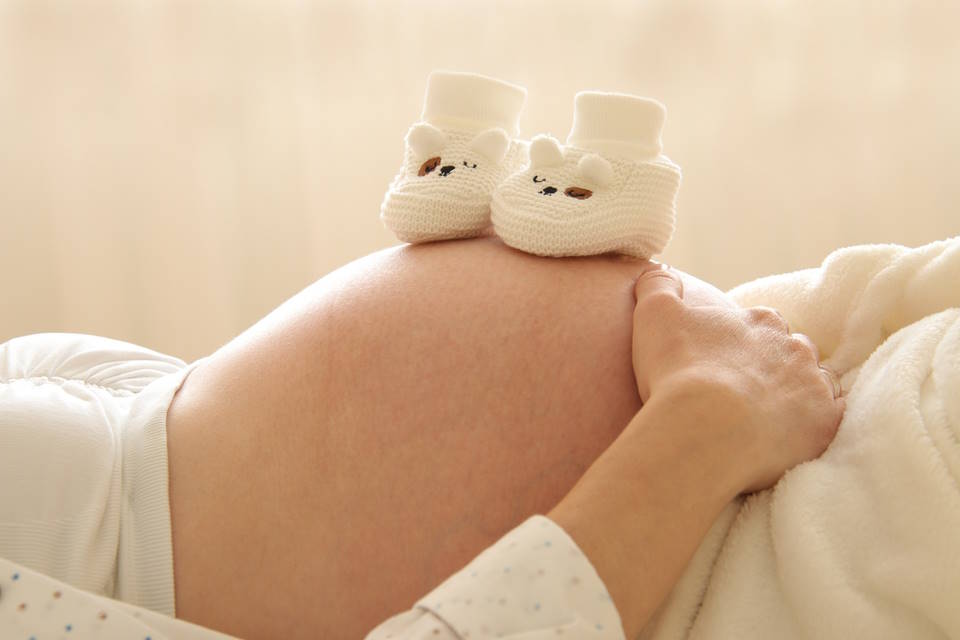Pregnancy is a special time in any woman’s life, filled with joy, anticipation, and occasionally, some discomfort. As an expectant mother, it is crucial to be well-informed about the medications you can safely take during this transformative period. Among the burning questions many women have revolves around the use of pain relievers, specifically whether it is safe to take Excedrin while pregnant.
In this blog post, we will delve into the topic of Excedrin and pregnancy, addressing common concerns and providing helpful insights. We will discuss the potential risks associated with taking Excedrin during pregnancy and explore alternative pain relief options that are considered safe for expectant mothers. Remember, the information shared here should serve as a general guideline, and it is always best to consult with your healthcare provider before taking any medication during pregnancy.
Join us as we shed light on the subject of Excedrin use during pregnancy and aim to provide you with a comprehensive understanding of what is considered safe and recommended for the well-being of both you and your unborn child. Remember, making informed decisions is critical at this stage of your life, and our goal is to arm you with the knowledge you need to make the best choices for yourself and your baby.
Introduction
When it comes to pregnancy, it’s important to be cautious about what medications you take. Many over-the-counter drugs, including painkillers like Excedrin, may pose potential risks to both the mother and the developing baby. Excedrin is a popular medication that combines acetaminophen, aspirin, and caffeine to relieve headaches and migraines. However, before considering taking any medication during pregnancy, it is crucial to consult with your healthcare provider.
Is Excedrin Ok While Pregnant?
One of the most common concerns among pregnant women is whether it is safe to take certain medications during pregnancy. Excedrin, a popular over-the-counter pain reliever, is often used for relief from headaches, migraines, and other minor aches and pains. However, when it comes to taking Excedrin during pregnancy, it is crucial to exercise caution and consult with a healthcare professional.
The main active ingredients in Excedrin are acetaminophen, aspirin, and caffeine. Acetaminophen is generally considered safe for pregnant women when taken in recommended doses. It is frequently recommended to manage pain and fever during pregnancy. However, aspirin and caffeine, which are also present in Excedrin, have different considerations.
-
- Aspirin:
It is generally advised to avoid taking aspirin during pregnancy, particularly during the first and third trimesters. Aspirin has been associated with an increased risk of complications such as miscarriage, bleeding, and delayed labor.
-
- Caffeine:
While moderate caffeine consumption is generally considered safe during pregnancy, excessive intake should be avoided. High levels of caffeine have been linked to a higher risk of miscarriage and low birth weight. Excedrin contains caffeine, so it is important to be mindful of the caffeine content in other sources such as coffee, tea, and chocolate.
Given the potential risks associated with aspirin and caffeine, it is advisable to explore alternative pain relief options during pregnancy. Consulting with a healthcare provider is key to finding a suitable alternative that is safe for both the mother and the developing baby. They can provide personalized advice based on the specific circumstances and medical history.
While acetaminophen in Excedrin is generally considered safe during pregnancy, the presence of aspirin and caffeine raises concerns. It is recommended to avoid Excedrin during pregnancy and discuss alternative pain relief options with a healthcare professional. Prioritizing the health and well-being of both the mother and the baby is vital during this special time.
What Would Happen if I Take Excedrin While Pregnant?
Excedrin is a popular over-the-counter pain reliever that is commonly used for migraines, tension headaches, and other types of pain. However, when it comes to taking medication during pregnancy, it’s essential to proceed with caution. Pregnant women need to be extra careful about the drugs they consume, as certain medications can potentially harm the developing fetus. We will explore the potential risks and concerns associated with taking Excedrin while pregnant.
If you are pregnant or planning to become pregnant, it is crucial to consult with your healthcare provider before taking any medications, including Excedrin. The primary ingredient in Excedrin is a combination of aspirin, acetaminophen, and caffeine. While acetaminophen is considered safe to use during pregnancy, aspirin and caffeine should be used with caution or avoided altogether.
- Aspirin: Taking aspirin during pregnancy, especially during the third trimester, has been associated with various complications, including bleeding issues and reduced amniotic fluid levels. Additionally, the use of aspirin near delivery can increase the risk of bleeding in both the mother and the baby.
- Caffeine: Excedrin contains caffeine, a stimulant that can cross the placenta and affect the baby’s heart rate and metabolism. Consuming high levels of caffeine during pregnancy has been linked to an increased risk of miscarriage, preterm birth, low birth weight, and developmental delays.
It is important to note that every pregnancy is unique, and the potential risks associated with Excedrin can vary from woman to woman. In some cases, healthcare providers may recommend alternative pain relief options that are safer during pregnancy. These alternatives may include using a single-ingredient medication, such as acetaminophen, or exploring non-medication remedies, like relaxation techniques, warm compresses, or gentle exercise.
| Painkiller Options During Pregnancy | Safety |
|---|---|
| Acetaminophen (Tylenol) | Safer option when used as directed |
| Ibuprofen (Advil, Motrin) | Not recommended during pregnancy, particularly in the third trimester |
| Naproxen (Aleve) | Not recommended during pregnancy, particularly in the third trimester |
Ultimately, it is crucial to prioritize the health and well-being of both the mother and the developing baby. While the occasional use of Excedrin may not pose significant risks, it is always best to consult with a healthcare professional before taking any medication during pregnancy. They can provide personalized advice and guidance based on your specific situation and medical history.
Which Painkiller Is Safe for Pregnancy?
During pregnancy, many women experience various discomforts and pains. However, it’s crucial to choose painkillers that are safe for both the mother and the baby. With so many options available, it’s important to understand which painkillers are considered safe during pregnancy. We will discuss different painkillers and their suitability for use during pregnancy.
One common painkiller that many people reach for is Excedrin. However, it’s essential to consider the safety of taking Excedrin while pregnant. Excedrin contains a combination of acetaminophen, aspirin, and caffeine, which may not be suitable for use during pregnancy. Acetaminophen, also known as paracetamol, is generally considered safe during pregnancy when used as directed by a healthcare professional.
Aspirin, on the other hand, is generally not recommended during pregnancy. It may increase the risk of bleeding and other complications, particularly during the later stages of pregnancy. Regular or high doses of aspirin should be avoided.
Caffeine is another component of Excedrin that should be monitored. While small amounts of caffeine are usually considered safe during pregnancy, excessive consumption should be avoided. High levels of caffeine have been associated with an increased risk of miscarriage and preterm birth.
- Tylenol (acetaminophen): This is one of the most commonly recommended painkillers during pregnancy. It’s considered safe for short-term use when taken as directed.
- NSAIDs (Nonsteroidal anti-inflammatory drugs): Medications like ibuprofen and naproxen should generally be avoided during pregnancy, especially during the third trimester. These drugs may increase the risk of complications.
- Consult your healthcare provider: It’s always crucial to consult your healthcare provider before taking any medication during pregnancy. They can provide personalized advice based on your individual situation.
| Painkiller | Safety During Pregnancy |
|---|---|
| Tylenol (acetaminophen) | Generally considered safe when used as directed |
| NSAIDs (ibuprofen, naproxen) | Not recommended, especially during the third trimester |
In conclusion, when it comes to choosing a painkiller during pregnancy, it’s important to prioritize the safety of both the mother and the baby. While acetaminophen, such as Tylenol, is generally considered safe for short-term use, it’s important to avoid NSAIDs like ibuprofen and naproxen. Additionally, consulting with a healthcare provider before taking any medication is crucial to ensure the best possible outcome for both the mother and the baby. Always follow the guidance of a medical professional to ensure a safe and comfortable pregnancy journey.










